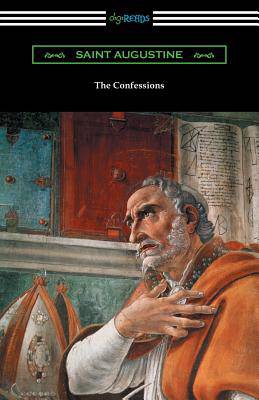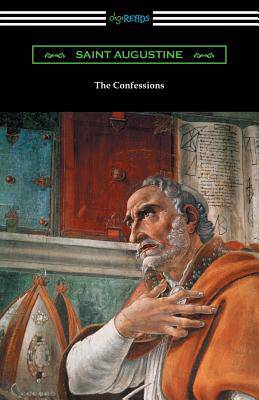
- Afhalen na 1 uur in een winkel met voorraad
- Gratis thuislevering in België vanaf € 30
- Ruim aanbod met 7 miljoen producten
- Afhalen na 1 uur in een winkel met voorraad
- Gratis thuislevering in België vanaf € 30
- Ruim aanbod met 7 miljoen producten
Zoeken
The Confessions of Saint Augustine (Translated by Edward Bouverie Pusey with an Introduction by Arthur Symons)
Saint Augustine
Paperback | Engels
€ 16,45
+ 32 punten
Omschrijving
Written between 397 and 400 A.D., "The Confessions of Saint Augustine" is thought to be the first autobiography in Western civilization and is considered by many to be one of the most important religious works of all time. While not a complete account of Augustine's life, for Augustine wrote "Confessions" in his early forties and would live well into his seventies, it is one of the most complete first-hand accounts of anyone's life from the fourth or fifth century, in which the author outlines the sins of his youth and conversion to Christianity. "The Confessions" tells of its author's upbringing in Algeria, his place at the Imperial court of Milan, his struggle to overcome his sexual desires, and the ultimate dedication of his life to Christ and Christian ways. "The Confessions" are not simply a recount of the author's life but a true exploration of what it is to be Christian and the struggles that one must overcome in order to find Christ and live a more pious life. A pioneering work of autobiography, "The Confessions" remains one of the most important works of spiritual devotion ever written. This edition is printed on premium acid-free paper, follows the translation of Edward Bouverie Pusey, and includes an introduction by Arthur Symons.
Specificaties
Betrokkenen
- Auteur(s):
- Vertaler(s):
- Uitgeverij:
Inhoud
- Aantal bladzijden:
- 214
- Taal:
- Engels
Eigenschappen
- Productcode (EAN):
- 9781420951967
- Verschijningsdatum:
- 10/11/2015
- Uitvoering:
- Paperback
- Formaat:
- Trade paperback (VS)
- Afmetingen:
- 140 mm x 216 mm
- Gewicht:
- 276 g

Alleen bij Standaard Boekhandel
+ 32 punten op je klantenkaart van Standaard Boekhandel
Beoordelingen
We publiceren alleen reviews die voldoen aan de voorwaarden voor reviews. Bekijk onze voorwaarden voor reviews.








